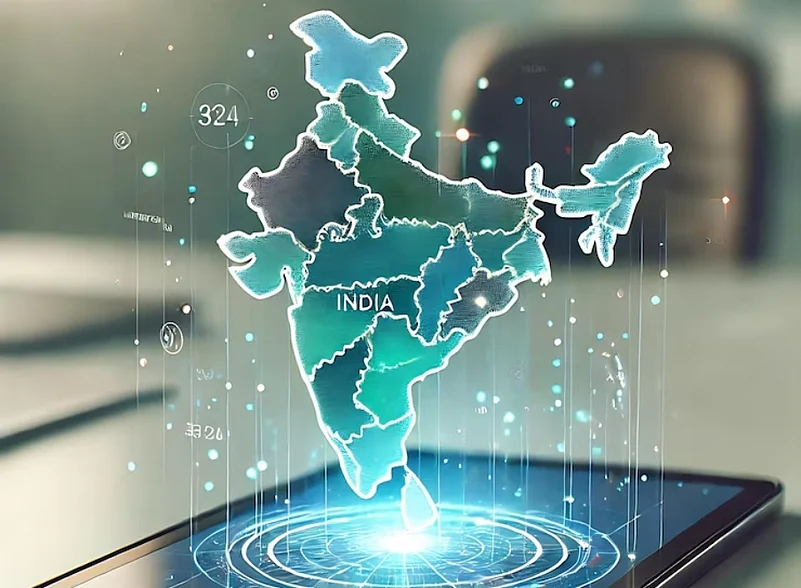In a country like India, where data digitization is vastly transubstantiating everything from banking to healthcare and governance, the question of sequestration is no longer philosophical — it’s critical and practical. With the growth of Aadhaar- linked services, digital holdalls , UPI, and online records for everything from conventions to court judgments, Indian citizens are living increasingly connected lives. But what protects all that data from being unnecessarily exposed, misused, or indeed vended?
Enter the idea of Zero- Knowledge Attestations( ZKPs) — a cryptographic invention that may still be one of the most important structural blocks of digital trust in the country.
The sequestration Dilemma in India’s Digital Leap
India is a incongruity of technological progress and sequestration challenges. On one hand, digital services are making life more accessible and effective — whether it's pastoral citizens penetrating subventions with a point, or council scholars vindicating their credentials through a government gate. On the other hand, data leaks, sequestration breaches, and surveillance enterprises continue to cast murk on this progress.
The core problem is this most digital deals bear exposure — you must hand over your data to prove commodity about yourself. Want to open a bank account? Show your ID, address, and particular details. Want to prove your age? Partake your full date of birth. This “ all or nothing ” approach to data verification isn't only parlous, it’s outdated.
What Makes Zero- Knowledge Attestations So important?
A Zero- Knowledge Proof flips this paradigm on its head. It allows someone to prove that they know or retain commodity — without ever revealing the thing itself.
Imagine you walk into a bar in Delhi, and rather of flashing your ID to prove you are over 18, you use a technology that confirms your age without showing your birthdate, name, or address. The bar knows you are fairly allowed in. That’s it. Nothing more is participated.
Now expand this to other use cases — banking, voting, medical history access, employment verification — and the implicit becomes stunning. Zero- Knowledge Attestations enable sequestration- by- design. It’s not an add- on or a policy demand; it’s ignited into the system.
Why India Needs This Now further Than Ever
India's data population is massive and fast- growing. With over a billion mobile connections and rising internet penetration, the country is contending toward a future where everything can be done digitally — from paying electricity bills to penetrating telemedicine.
But this digitization, especially in a republic, must be matched by robust digital rights. Zero- Knowledge Attestations offer a way to keep citizens in control of their data while allowing systems to remain effective, scalable, and secure.
Consider digital identity. moment, your entire Aadhaar details might be participated with service providers. With ZKPs, one could prove eligibility for services — say, being a occupant of a certain state or falling within a certain income type — without revealing one’s full identity or fiscal history.
This balance between mileage and sequestration is especially critical in India, where large parts of the population are only just getting familiar with digital tools. They earn systems that do n’t force them to trade sequestration for access.
Challenges and the Road Ahead
While the pledge of Zero- Knowledge Attestations is immense, the road to mainstream relinquishment in India won’t be simple. It requires specialized structure, policy support, and over all — public trust. inventors must insure that ZKPs are enforced in a way that’s effective and scalable. Governments and institutions must learn to trust what they can not “ see ” in the traditional sense.
And the biggest challenge of all may be artistic. In India, where translucency is frequently equated with openness and trust, the idea of not revealing information can feel counterintuitive. That’s why education will be crucial — people must understand that not revealing everything can, paradoxically, increase trust in the system.
Final studies
In a digital age that too frequently asks people to surrender control of their particular data in exchange for convenience, Zero- Knowledge Attestations offer a new vision — one where sequestration and access go hand in hand.
For India, this technology isn’t just a futuristic conception. It’s an critical occasion to lead the world in erecting a digital society where data flows freely but remains forcefully in the control of the existent. It’s time we imagined a new kind of digital trust — one that does n’t demand evidence at the cost of sequestration. Zero- Knowledge Attestations might just be the ground we need.














